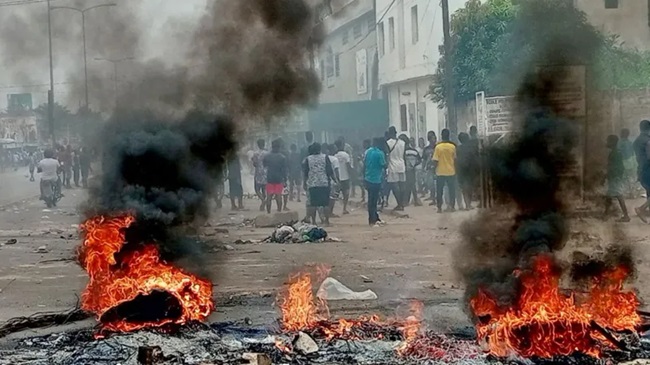

Your go-to source for in-depth coverage of political developments, economic trends, social affairs, and vibrant cultural stories from across the continent.

The unrest has gripped the capital, Lomé, with demonstrators clashing with security forces in recent weeks. At least five people are confirmed to have died in the confrontations.
More demonstrations are planned for Friday, as frustration over the political maneuver continues to mount.
Unlike in previous uprisings, the current wave of protest has not been led by traditional opposition parties—many of which were decimated in recent local elections—but by a vibrant coalition of musicians, bloggers, and grassroots activists. These groups have mobilised public anger over a political dynasty that has ruled Togo for nearly six decades.
Faure Gnassingbé has led the country since 2005, following in the footsteps of his father, Gnassingbé Éyadéma, who seized power in 1967. Their combined reign outpaces even that of Cameroon’s 92-year-old President Paul Biya and the Bongo family in Gabon, where President Ali Bongo was ousted in a 2023 coup.
The recent constitutional overhaul—introduced abruptly and pushed through a loyalist-dominated national assembly without a public referendum—restructures Togo’s system of governance, stripping the presidency of real power and transferring it entirely to the office of the prime minister. With his party, Union pour la République (Unir), controlling the legislature, Gnassingbé now assumes this dominant post indefinitely.
Civil Service and Labour Minister Gilbert Bawara defended the changes, insisting the 2024 election was fair and inclusive.
“The government cannot be held responsible for the weakness of the opposition,” Bawara said in a BBC Focus on Africa interview. He also blamed foreign-based activists for inciting unrest, accusing them of pushing “young people to attack security forces.”
The presidency, now reduced to a ceremonial role, has been handed to 86-year-old former business minister Jean-Lucien Savi de Tové.
Critics say the new constitutional model is a calculated move to cement Faure Gnassingbé’s grip on power while silencing accusations of dynastic rule. Protesters, however, vow to continue their resistance.
I am an avid African news observer, and an active member of Daily Mail Africa.
I’m Passionate about staying informed on diverse topics across the continent,
I actively contribute to publishing on political, economic and cultural developments in Africa.